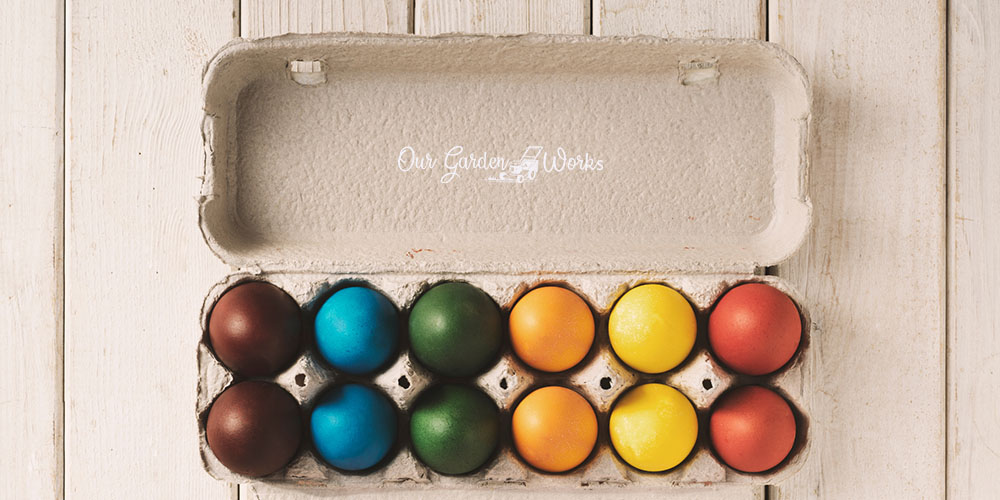If eggshells can be added to compost bins, it can be obvious to compost egg cartons too, especially if it’s made of crushed paper. You might think that questions about composting are trivial but the safety of the compost you are making can affect the health of your plants later on.
In this post, we will share why it’s crucial to select the materials you add to your compost bin and how it can affect the efficiency of compost as a soil supplement. Since egg cartons can be hard to throw out without recycling, we also included some ideas on how you can repurpose them.
Your efforts in reducing waste that goes to landfills are commendable! Now, let’s get you started on recycling, upcycling, and repurposing egg cartons.
Q: Can You Compost Egg Cartons?
The obvious answer is yes as long as it is made of paper pulp. Paper is rich in carbon that blends well in the nitrogen-rich pile of compost. If you come to think of it, paper essentially came from wood pulp. Wood is considered a brown component in the brown-green balance in compost piles.
The brown-green balance represents the equal distribution between carbon and nitrogen in compost. The carbon component in compost helps nourish the plants since they need carbon dioxide for respiration and the production of plant energy.
Some egg cartons are made of plastic and styrofoam which do not decompose and belong to a recycling center or the landfill. You can’t add them to your compost pile, but you can reuse them for other purposes. We will give you some tips about recycling your egg cartons later in this post.
For now, here’s how you can compost egg cartons the right way.
How To Compost Egg Cartons?
While it’s easy to toss a paper egg carton in the bin, microorganisms, and worms responsible for decomposing might not be pleased with it. They’ll need to spend extra time and effort to disintegrate the whole carton before they begin the decomposition process.
To keep everyone happy in your compost bin, here are some composting tips so you can use your compost in no time:
- Tear: Tear the egg cartons into pieces. If you’re stressed about something, put all your frustrations into tearing the carton into smaller digestible pieces for worms and microorganisms. It’s a simple way to de-stress like squeezing a stress ball but with a purpose.
- Cut: If you want to make things easier, you can use scissors to cut the carton into pieces. It is more time-efficient and gentle on the hands. Just make sure to remove any colored labels, stickers, and other petroleum-based products that may compromise the safety of our compost pile.
- Soak: If you want to make things easier, you can soak the egg cartons to soften them up and add them to the pile. However, you have to make sure that the paper pulp is not dripping wet to prevent making the compost soggy.
5 Ideas For Repurposing Non-Biodegradable Egg Cartons
The form of egg cartons makes them an ideal container for several materials. If the egg cartons that you have are made of plastic or styrofoam, you can still reuse them using the following ideas:
Seedling Tray
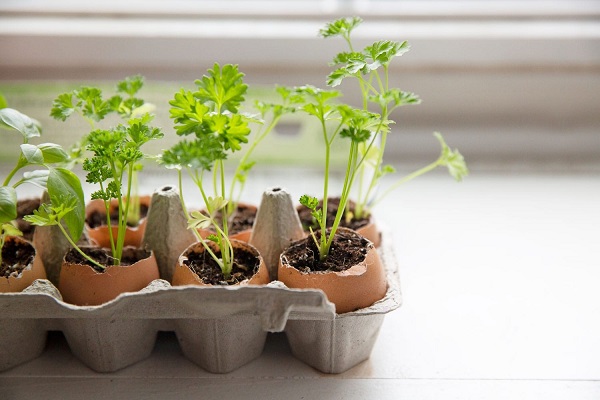
Egg cartons are a perfect option when growing new seedlings. They have several hollowed portions where you can safely place the soil and plant the seeds.
You can reuse plastic egg cartons as long as it is in good condition. Imagine how many seedling trays you’ll have if you love buying eggs. You’ll surely never see yourself buying a new seedling tray for the rest of your gardening journey.
Watercolor Tray
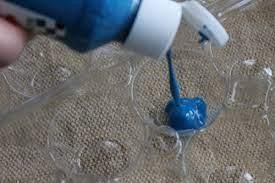
Plastic egg cartons make the best watercolor trays because they are deep enough to keep colors separated from each other. The plastic material can also hold water and is lightweight enough to be placed anywhere without any hassle.
If you have a kid who is starting to learn about colors, egg cartons are a great way to use them as a tool to show them the colors or how to mix them.
Organizer
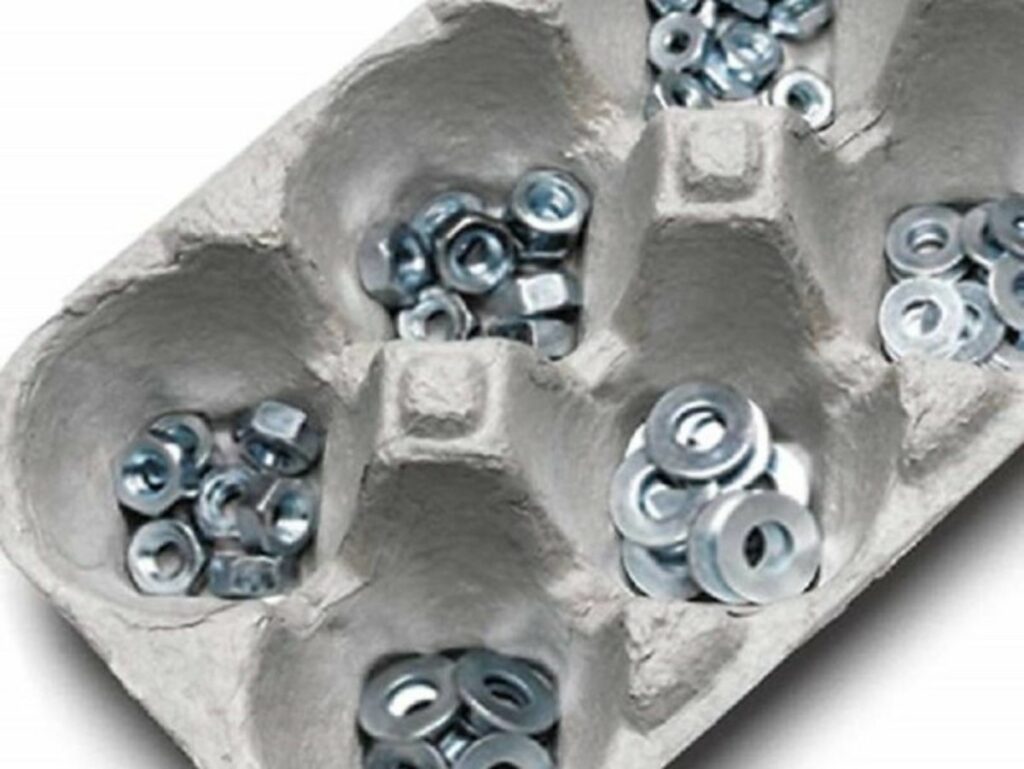
Whether it’s a pile of staples, thumbtacks, or sewing pins, you can organize the tiny office supplies in an egg carton. Why buy another batch of plastic organizers that can cost hundreds of dollars if you can take advantage of the plastic egg cartons you have at home.
Though egg cartons are not aesthetically pleasing to the eye, you can paint them or design them to blend with the design of your office. When creativity meets resourcefulness, you’ll surely save a lot of money.
School Projects
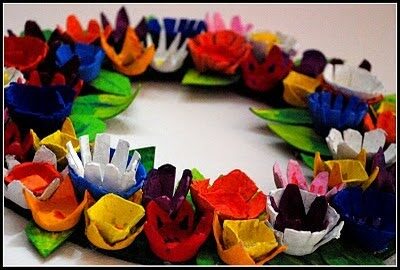
To make the best use of your plastic egg cartons, you may donate them to your niece or kids that need biodegradable materials for their art projects. Instead of going to landfills, your plastic cartons can turn into beautiful artworks created by small creative minds.
Lamp Designs
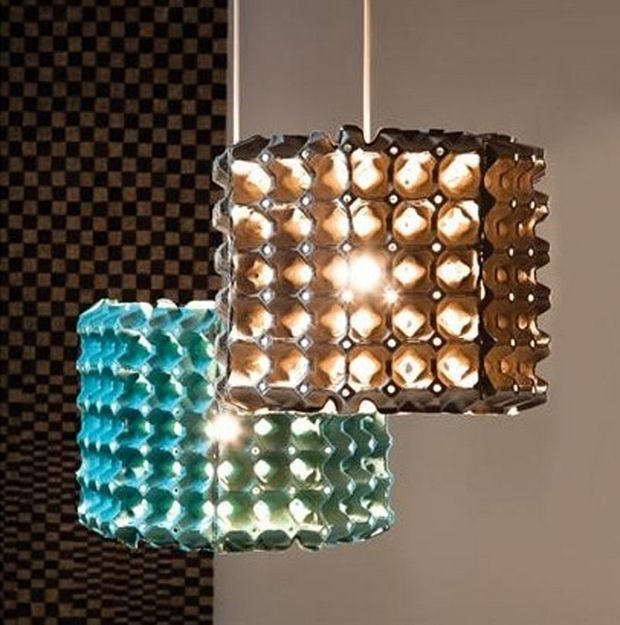
Egg cartons have holes where air and light can come through. You may use those holes to help illuminate light and turn the egg cartons as a design for your light fixture.
Who would have thought that egg cartons can be a unique lamp design like the image above, right?
Home For Dubia Roaches
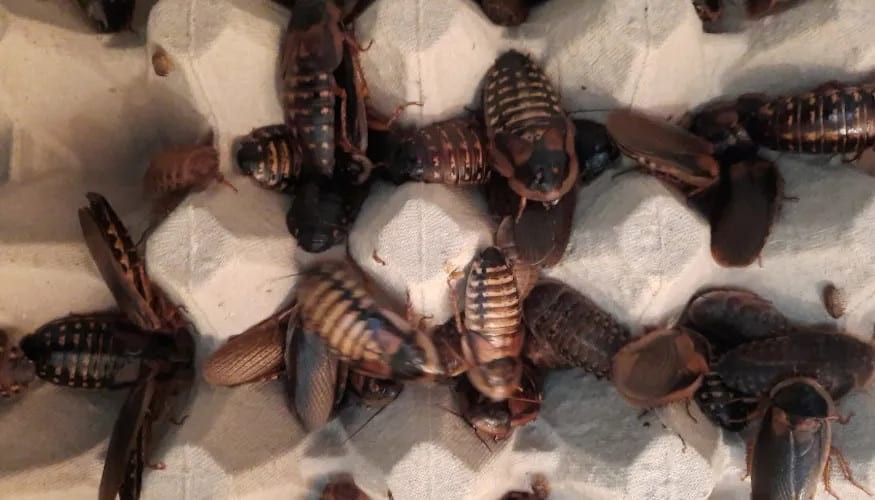
Roaches freak out almost anyone. However, some roaches are farmed or kept by pet owners to feed their reptiles like iguanas. Roaches love staying in cardboards, the same way they love the ambiance of woods. However, they can also stay in a colored plastic container because they hate being exposed to the light.
The hollow parts of the egg carton give them the space to mate, lay eggs, and propagate. Donate your egg trays to Dubia roach growers and they’ll surely appreciate your support for their hobbies.
Birdfeeder
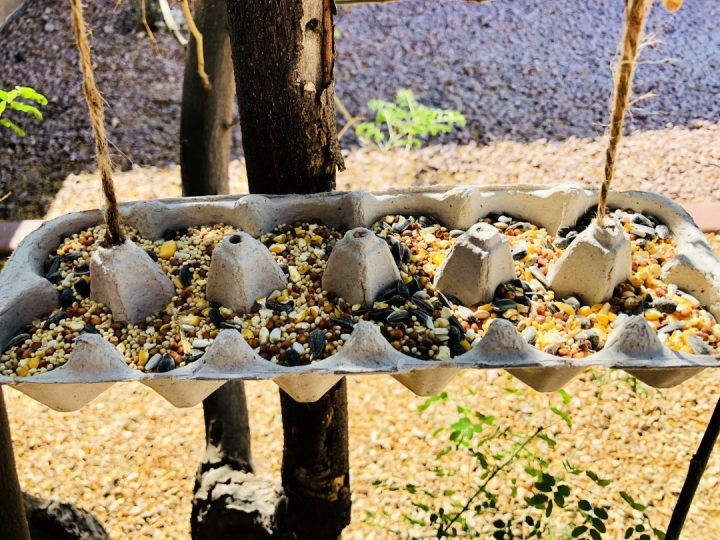
The shallow egg holder in an egg carton can serve as a bird feeder. Plastic cartons are lightweight, which makes it easier for you to hang them on trees where birds often stay and roam around. Unlike cardboard boxes, plastic egg trays can withstand the elements longer.
What’s The Threat? – Reasons Why You Should Compost With Caution
Composting may look like it’s far from being a daunting task. However, in some instances adding the wrong material can lead to plant death, infestation, and illnesses.
Here are the reasons why you should keep your compost clean and prepare it with caution:
No Heating
The compost needs to heat up to 135° F to 160° F to ensure that all pathogens die. The decomposition activity that takes place is the reason behind the compost warming up. As the microorganisms feed and process the organic materials they release oxygen that gets trapped in the compost pile causing it to heat.
Now, if you add too many brown materials like egg cartons or green materials like grass clippings, the heating process might become off balance. It can lead to no heating or too much heating that will kill the beneficial microorganisms in the compost pile.
Attractive To Pests
According to Iowa State University, you should refrain from composting the following materials because they are slow to decompose, smelly, and can attract pests into your home:
- Dairy products
- Scraps of meat
- Animal bones
- Whole eggs
- Oil
The smell of rotting meat, in particular, can invite flies, rodents, roaches, and other nasty pests to your property. Other gardeners don’t mind the threat, but it’s better to err on the side of caution, especially if you have kids and pets at home.
Weed Bomb and Herbicide Traps
Weeds are notorious enemies or gardeners. They suck the life out of plants and spread like wildfire, especially dandelions. The compost needs to heat up to 140°F to kill weed seeds. Otherwise, they will spread in your garden and become a new source of headache.
Another reason why you should keep an eye on your composting practices is the threat of herbicides. Grass clipping from an herbicide-treated lawn can pose threats to your plants once you place the compost. Ensure that all the green components in your compost are free from any chemicals.
What Are The Ideal and Non-Ideal Materials To Add To Your Compost?
Uninitiated gardeners often think that anything biodegradable can go to a compost pit or pile. Little did they know, the quality of the compost is determined by the materials they put in it.
So, aside from composting egg cartons, here is the list of the ideal items that you can add to your compost:
- Untreated leaves and grass clippings
- Straw/hay
- Sawdust
- Pruned leaves and stems
- Shredded tree
- Eggshells
- Apple cores
- Banana, orange, and other fruit peel
- Melon and watermelon rinds
- Newspaper
- Cow and goat manure (vegetarian)
- Yard waste (disease-free)
- Coffee grounds
- Minimal wood fire ash
- Chicken manure
Now, here are the materials that you should not add to your compost bin:
- Dog feces and cat litter
- Weeds with seeds
- Plants with fungal and bacterial disease
- Chemical-treated plants and leaves
- Dead animals
- Synthetic coffee and tea bags
- Printed papers and stickers(petro-chemicals)
- Too much wood fire ash
- Sawdust and shavings from treated wood
- Black walnut tree leaves or twigs (Releases substances harmful to plants)
What Are The Factors That Matter When Composting?
Composting is not a trivial task if you want to do it right. Here are some of the things that you should keep in mind when composting:
(1) Size matters: In composting size matters, you don’t have to build a large mound of compost just for the sake of making enough for your plants. The ideal size is 3 ft. x 3 ft. or 5ft. x 5 ft. Managing the size of your compost pile allows you to layer them properly and create a balanced brown-green tandem.
(2) Variations – wood and leaves: The compost bin or pile should be layered to create a perfectly mixed compost. Each layer should be 6 to 8 inches. Here’s the order of layering your compost:
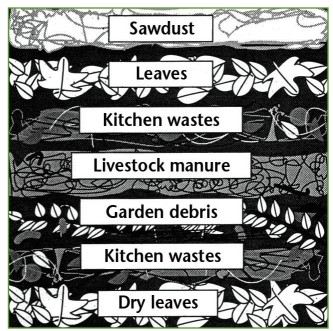
(3) Cleanliness of the materials: If you are planning to use the compost for vegetable and fruit propagation, the quality of the materials in the compost should not contain feces from non-vegetarian animals. The harmful bacteria in their feces might get into the vegetable plants and get into your system when you consume them.
(4) Dampness: The compost must be damp but not too soggy. Moisture helps the microorganisms thrive and continue working on the decomposition of scraps.
(5) Aeration: After several weeks, you need to turn the compost around to aerate the bottom part. Tossing it over can help the microorganisms to speed up the process and help your compost be ready within a month.
Frequently Asked Questions (FAQs)
Can you put egg cartons in the compost bin?
Yes, but you have to shred them first to help the worms and other microorganisms in the compost to decompose them. You may also soak the egg cartons with water and then place them in the pile. Both moisture and paper will surely delight the organisms in the compost.
How long do egg cartons take to decompose?
The egg cartons will take 2 to 4 weeks to decompose. It can extend to a few more weeks if you don’t remove any colored labels or stickers in the cartons, which take a very long time to decompose.
What seeds are best to start in egg cartons?
Almost any seed would be fine. However, the best ones that may sprout faster are beans, cucumbers, and herbs like basil.
Final Thoughts
We hope that this post answers your questions if you can compost egg cartons. Always remember that compost is only a soil supplement and not an ideal substitute for fertilizers. It may look simple but you have to learn more about how the compost works so your plants can greatly benefit from its nutrients.
If you find this post helpful, please don’t forget to share this post with your friends. Also, let us know in the comments about your composting experiences! For now, enjoy composting and recycling!
